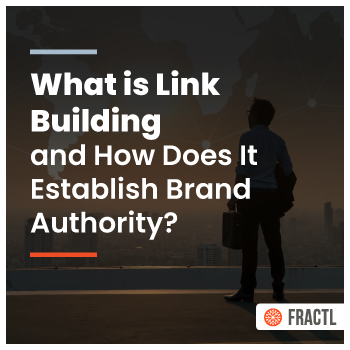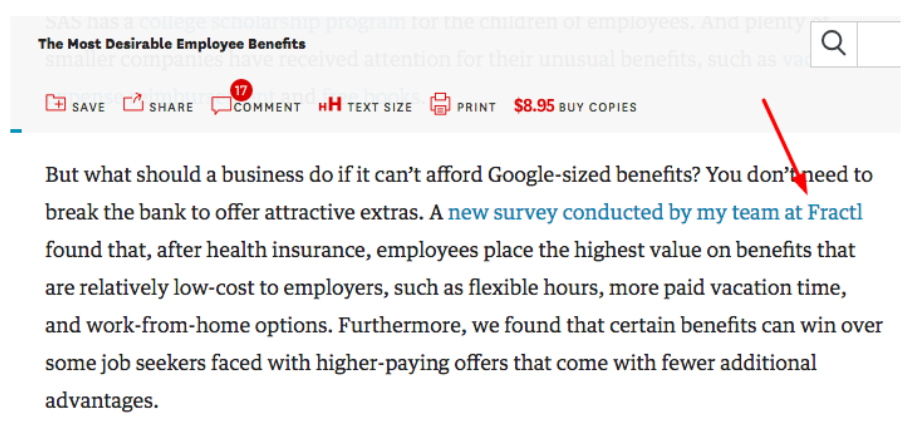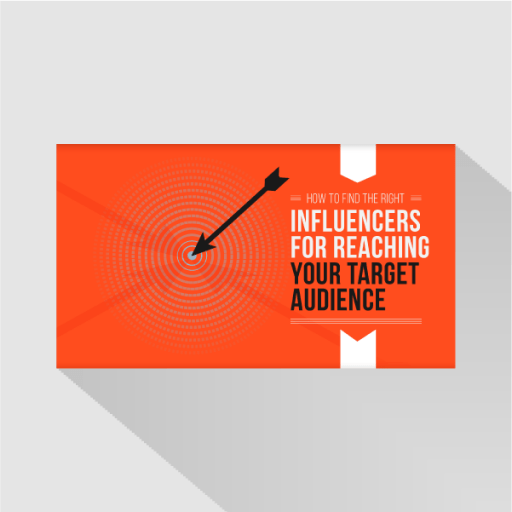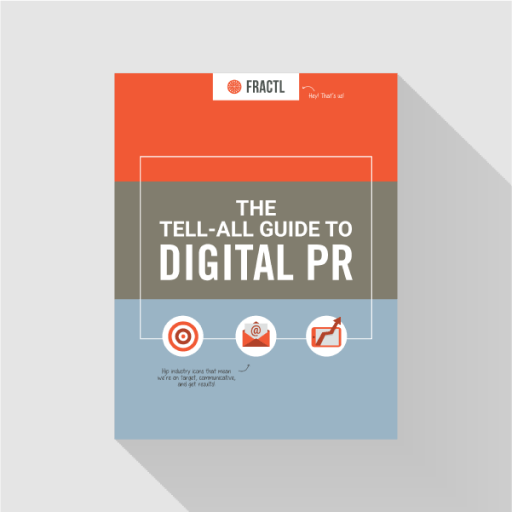Out of context, it sounds like a children’s toy or some kind of complicated arts and crafts project. But link building is actually a pivotal piece of the content marketing puzzle. Without it, a lot of the work you’re doing might not be reaching its full potential, which is a scary thought, considering how much time, effort, and money it takes to make and promote great content.
If you’ve found yourself asking, “But seriously, what is link building?” then we’ve got you covered. This post will break down what it is, why you need to do it, how you can do it, and what lies ahead for this digital marketing practice.
What is Link Building?
Like all boring graduation speeches, we’ll start with a quote:
“For people to discover your website, you need to build pathways and big, flashing signs that lead them there. In digital marketing terms, this means you need links, links and more links.”
— Luisito Batongbakal, MonitorBacklinks.com
Let’s deconstruct that.
As you know, links connect everything online. Odds are, you got to this blog post because you clicked on a link in Google or from another site. Very rarely do we type in exact URLs to arrive at pages. Links help us navigate the web, and that’s exactly why your site needs to establish a presence in that map.
When we talk about links in the context of link building, we’re referring to links that point to your site. For example, if your company has a Wikipedia page that links to your company’s homepage, that’s a link in this context, and that’s the type of link you want to “build.”
For example, this Harvard Business Review article mentions a study we did, and it includes a link to the original study in the article.
Now, when people are reading, if they want to go to the source, they can click on the link and be navigated there. That means more people end up on our site, which is a great thing and illustrates why links are important for directing people to where they want to go online.
“Link building” is the endeavor to get more of these types of links.
And there’s another critical reason why links that point to your site — or “backlinks” — are important.
Why do I Need to Build Links?
So, yes, you want your site to be found by people browsing the web. But that can’t the only reason there’s so much hullabaloo around link building, right?
Links do more than link pages together across a website. They’re also a very, very important indication of authority.
Think of it this way.
If someone asks you about hairdressers in your town, and you hand them your hairdresser’s card, you’re linking them to that salon. But you’re also suggesting that you recommend that hairdresser. You’re not just giving them a random name — you’re referring them to someone you trust.
Similarly, if someone is writing an article or building out a page of their site, they’re not going to link to just anyone in their content. They’re going to link to sites they trust. If given the choice, would you link to a stranger’s Tumblr page or a .edu site? A shady-looking page with typos, or a well-thought-out Medium article? The choices people make when linking create an inherent referral system online, and these organic recommendations help us know who to trust.
Google knows this, too, and in order to help quality sites rank highly in search results, they use links to help them determine which sites can be trusted.
Now, it’s important to know that not all sites are created equal. If two people give you recommendations for the hairdresser, and one of those people has a gorgeous cut and color while the other is rocking a rattail, you’ll probably go with the former’s suggestion.
Google does that too — they look to see who is doing the recommending to decide how much trust they want to give the linked-to site. For example, if I link to your site from my personal blog, that might count for a little bit of authority, but if The New York Times links to your site, um, that counts for a lot more.
So, the true essence of link building is not just trying to get as many links to your site as possible but trying to get the most authoritative links to your site as possible. Then, not only do you have pathways for people to take to get to your site, but you also have evidence that what you’re saying is trustworthy, and you’re improving your chances of Google ranking your pages well.
How are Links Built?
There are a lot of ways to build links; some of them are ethical, and others are, well, sketchy. The way the digital marketing world has decided to bucket these tactics is by using an old Western trope (because why not?).
Black Hat Link Building
You know how we said Google uses links to determine authority? Well, back in the day, they couldn’t tell the difference between links. They were all created equal. And that, my friend, was a frightening time — a wasteland of spammy, nonsensical comments and webpages that just featured hundreds of links and nothing else.
People knew that any link meant something, so they’d throw links everywhere, even when it made no sense. Early SEOs could easily game the system this way, and anyone with this knowledge can make their pages rank without doing very much work or having good content. This is “black hat” link building — the workaround version that’s not exactly honest.
Thankfully, search engine algorithms are much more sophisticated now, and thus search results have improved dramatically, which is a huge win for Internet users. Some people still dabble in black hat or “gray hat” link building, but as time goes on, these types of links will continue to be penalized. It’s just not worth risking your reputation!
White Hat Link Building
Instead, we recommend “white hat” link building. This type of link building depends on hard work. You have to create content that people want to link to! (Oh, the humanity!) That involves considering your target audience and what they need or want to know, and then you have to take the time to create that content.
If you can’t tell what shade of hat you’re dealing with, when you get a link, as yourself: Did I earn this? You should always feel like your content deserves the link you got.
For example, our team allocates at least a month to each content campaign. The end product is a result of many hours of project managers, designers, writers, data analysts, and sometimes programmers or other specialists contributing their expertise. We launch surveys, distill datasets, and create elaborate (but easy to understand) visualizations to make stories come to life because we know that’s what makes for good content. This is what you have to do — make stuff you’re proud of.
Then, when our digital PR specialists set out to pitch the content we create to publishers, they feel confident in it, too, meaning they can write genuine pitch emails that really speak to the writer they’re reaching out to and offer content the writer actually wants.
This is the type of link building that will last. It’s based on an authentic desire to engage with audiences and contribute to conversations in a meaningful way. And who can ever fault that? These types of interactions make for the building blocks of great online dialogue and exchange.
What Lies Ahead for Link Building?
The way Google analyzes links will continue to become more sophisticated and favor high-quality, natural linking.
There will also continue to be techniques that work for some, then dramatically increase in popularity across the board, become spammy and thus less effective, and then hopefully level out back to a normal state.
Guest blogging is a great example. People were contributing blog content (or “guest posts”) to other sites and getting links in their author profiles. Marketers began to realize how effective that tactic was for link building, so nearly everyone on Earth started mass sending out pitch emails asking to put content on someone else’s blog. The quality of these requests plummeted, and then people started to look down on guest posting. Now, thankfully, it’s back to a normal level (though not without a share of spammy people) and quality stuff breaks through the noise. (If you want to read up more on this topic, this SEMrush post covers the misunderstanding nicely.)
Something similar is happening with media coverage. A lot of what we do at Fractl involves helping brands create compelling, emotional, data-driven content relevant to their missions, and then we pitch it to publishers whose audiences would find it valuable and interesting. (Hint: You can build really high-authority links this way!)
Then, all marketers caught on. Some started pitching crap content to great writers, and the writers started getting sick of seeing content that wasn’t at all relevant to them or templated emails that were clearly blasted to hundreds of publications. So, writers and editors started paying less attention to these pitches or deleting the emails outright. And, just like guest posting, the work got much harder for the rest of us trying to do our due diligence and create great content worthy of sharing. If you don’t have an extremely engaging and worthy subject line, pitch email, relevance to their audience, and content package, you don’t stand a chance of breaking through the deluge of garbage these writers deal with.
This will be the cycle no matter what the tactic, but something will always remain the same: Quality will beat the trend. Do good, honest work, and it’ll be rewarded. The people slacking their way through these strategies will eventually (hopefully) discover it doesn’t work for them anymore and bailout and your good content and communication will find its way through. It just won’t always be easy.
If another strategy turns out to be successful, the same circle of life may occur. Make sure to leave the gate with high-quality content, and you’ll fare well.







